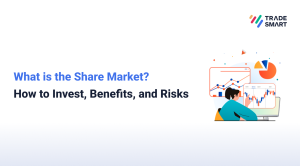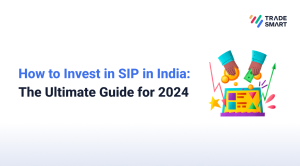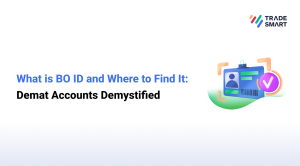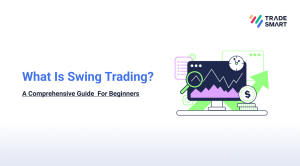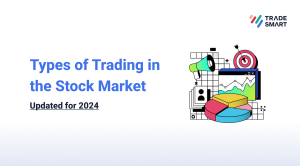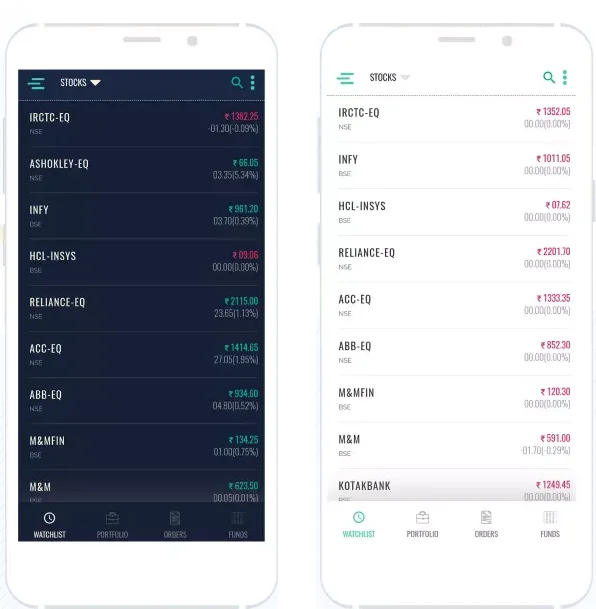
How To Invest In Share Market
With interest rates falling at a regular interval investors are looking for other avenues to generate higher returns. What better place to do that than the equity market or the stock market, as it is popularly known.
Unlike the debt market where the capital invested is generally safe, investment in stock markets is fraught with risk. Before investing it is important to understand the risk involved in the game and the rules of the game.
The law of harmonious attraction states that success attracts success. This is true for all fields from cinema, sports, and investing. Few success stories flashed by media have attracted more players to the market in search of glory.
Investing in the stock market is a growing and popular area of investment in the current economy, partly on account of growing awareness, higher salary levels, and a booming market.
Before understanding how to invest in the share market, let first understand the stock market and what is needed to participate in it.
What is a market?
A loose definition of the market is a gathering of people for the purchase and sale of goods or services. A transaction in a market is recorded when a buyer and a seller agree to transact a given quantity at a given price.
What is a stock market?
A stock market is a market where shares of various companies are traded. These days stock markets also trade derivatives of the stocks and indices.
What are shares?
A share is a unit of ownership of a company. A shareholder is one who holds or has the ownership of shares. Shares are offered by a company to the general public when a company wishes to raise capital.
In a process called the Initial Public Offering (IPO), the company floats its shares in the primary market where an individual can subscribe to the issue.
A company taps the market to raise money from new investors in order to carry out an expansion of their production capacity or launch new products, retire high cost debt, or simply to keep a cash chest ready for future acquisitions or expansion.
In an IPO, the company can issue new shares or the existing shareholders can offload their shares in the market through a process called ‘Offer for Sale’ (OFS).
Only after this procedure can the shares be listed and traded in the secondary market, where one can transact shares with others.
Shares enable its owners to have a voting right in the company giving an effect of a part-owner and have the right to dividend payment from the company.
How is the market regulated?
The Securities Exchange Board of India (SEBI) is the regulatory authority responsible to make sure that the stock market transactions are transparent and devoid of any frauds. It enables smooth functioning of the stock market as well as protection to all investors.
Who are the stakeholders in the market?
For the smooth functioning of the market, SEBI has allocated many agencies’ specific roles. Some of the agencies are Stockbrokers, Depository participant, Clearing Corporation, and Banks.
Clearing Corporation is a body that is established to oversee the successful clearing of all transactions. All transactions that take place in the market are cleared by the Clearing Corporation.
What are the registrations needed before an investor can participate in the market?
Any person who intends to participate in the market has to route his or her orders through a registered broker as per SEBI’s guidelines.
Stockbroker:
In order to trade, a participant needs to find a good and dependable stockbroker before he can start investing. Stockbrokers are those entities that provide access to their clients to participate in the marketplace. There is an account opening process, to become a client of the broker, that needs to be fulfilled before one can start trading. The account opening process involves opening an account with the Depository Participant, a bank account, and an account with the stockbroker, all of which are linked to each other.
These days a client has the option of opening offline, online, or both accounts with the broker. In an online account, the client can punch in their orders either through their computers or mobile apps.
A broker opens a trading account for a client with a unique trading code after all the documents have been submitted and verified. The client can transact in the exchange using his code. All buying and selling through the broker can be done after informing the client ID to the dealer.
In case of investing in the stock market through an online medium like a computer or mobile, the client needs to login into his system using his unique client ID and password. These days, most brokers can complete the process of account opening within a few days if not on the same day.
Depository and depository participant: Gone are the days when shares were held and exchanged in physical form. With the advent of technology, shares are now exchanged digitally or electronically. In order to do that one needs to open a Demat account that is provided by the depository participant.
A broker would like the client to open a Demat and trading account at his place. However, a customer has the choice of having a Demat account at a different depository participant.
A Demat account functions like a bank account. It keeps a record of your holding and transaction record. Investors cannot participate in the market without a Demat account. Generally it is hassle free to have the trading account and demat account with the same broker, though it is left to the investor’s choice where he prefers to have his demat account.
Bank: The market participant will need to open an account with a bank that can electronically be mapped with the Depository participant and the broker. A client can have more than one bank account connected with the trading account.
A client’s trading account and bank account which is both unique to the client need to be linked as it would help in seamless transaction of funds and shares. Electronic mode helps speed up the process and reduces scope for error apart.
The bank account is the conduit through which money flows between the client account and the market. Brokers will not permit transactions on the buy side unless there is money in the account.
How to invest in the share market online for 2021
Brokers generally have their own account opening process. While most of the Know-Your-Client (KYC) details are the same, some brokers tend to gather some extra data points.
While opening an account a customer would have to submit a set of documents apart from providing the details in the account opening form. Generally, most brokers ask for the same set of documentation, however, in some cases, there may be some changes.
Following documents are called for by the broker during while opening an account.
Proof of identity – Pan card, a ration card, voter ID, or a driving license
Address Proof – Aadhaar card, Passport or a ration card
Bank Account – A canceled cheque
Bank Statement – A six-month bank statement is needed when a client wants to trade in the derivatives segment.
Passport Sized photographs
How to transact after an account is opened?
The broker informs the client as soon as his account is opened and a unique account code is generated. The client is now ready to participate in the market. However, the client needs to have enough money in his bank account to start trading. There is no minimum account that a broker insists on, but one should have enough money to pay for the shares he wants to take delivery of, after including all costs.
How to invest in the share market
Stock Market in India
The investors can invest in either of the two markets -primary or secondary. For investment in shares, having a Demat account linked with the bank account and a trading account is a prerequisite.
How to invest in share market in the primary market (IPO)
Investors may wish to subscribe to a company’s IPO. This market doesn’t function like a traditional market where shares can be exchanged at any quantity as per the will of the buyer. The investors may subscribe to the shares but its allocation will be dependent on the market response. Once the application is received the company allocates shares based on the availability and demand of the shares.
IPO process has gone through considerable changes, bringing in more transparency in the process. Now if a person wishes to buy shares worth Rs 1 lakh through the IPO process, he need not give the money to the company. It can be kept on hold in the bank account of the investor but linked to the IPO through a process known as ASBA (Application Support through Blocked Amount). The money will be released only after the company earmarks the client for allocation. The amount will be released proportional to the allotment.
SEBI is continuously working towards reducing the time between the completion of an IPO process and the allotment of shares to the allottee. Only after the shares are credited to the Demat account of the client, can he sell it in the secondary market.
How to invest in share market in the secondary market
The secondary market is where the action is. Here, shares are bought and sold between two entities at an agreed price. When anyone uses the term stock market, they are referring to this market.
It is relatively easy to transact shares in this market. One should make sure that they have a Demat account linked with the bank account which contains sufficient funds and a trading account which is registered with a stockbroker.
This is the easy part, in order to, survive and accumulate wealth, one needs a special kind of skill and a lot of hard work.
Following are some aspects that an investor must keep in mind before investing:
Understanding investing profile
Opening an account with a broker and getting all formalities done is the easiest part of an investor’s journey. To be a successful investor requires one to have a methodology while purchasing shares. Investing in its most basic form is buying a stock when its value is below the price at which it is available.
There are various methods or strategies that one can adopt to invest in the share market. The most common and talked about is value investing. However, value investing offers few entry opportunities as stocks tend to touch the value zone mainly when there is panic in the market.
Many investors thus resort to investing in turnaround companies, investing in growth stocks, dividend yield-based investing, investing in growth at a reasonable price basis, among others.
One doesn’t need to know all forms of investing but knowing and mastering a few and sticking to a process makes for a good investment in the share market.
Is there a step-wise process in investing?
Like most rewarding things in the world, a step-wise process is needed to achieve one’s goals. The motive of every investor may be unique, but the process remains the same. Here is a step-wise process to achieve investing success.
Flagging financial goals
Every investor must plan his own financial goals. Though markets are unpredictable, one can aim for a goal and then select the strategy to use to reach that goal.
Setting a goal will help him understand which company’s shares to invest in, whether to opt for long-term or short-term investments.
The investor must also recognise the risk appetite or the maximum risk he is willing to take on his investment, this will help in deciding whether to invest in stable/reputed companies giving a decent return or to invest in upcoming/growing companies which involve high risk.
Handling your investments in the stock market is a tedious task and one must devote a sufficient amount of time to it. This brings us to the second step -research.
Research
Knowing how to invest in the share market requires knowing a company and making sure that it is financially sound and is capable of generating a decent return. This involves going back in time and thoroughly studying the financial statements of many years and making sure that the company is stable and performing well. Simply investing in a company’s share only by judging its stock price or buying and selling it on a news is a naïve activity.
Not putting all eggs in one basket
Risk decides the return for an investor. Investing in different types of industries will help mitigate the risk. Investing all the capital in one type of industry would erode our capital if events are unfavourable.
Therefore, knowing how to invest in the share market also requires knowing how to diversify your investments. It will act as a safeguard so that even if one industry is not behaving as per our plan, we still have enough gunpowder to invest in other industries.
At the same time, over-diversification will reduce risk but also the return. This leads us to the next step -monitoring.
Watching the basket
Over-diversification will not only reduce risk and returns but is also difficult to monitor as an individual investor.
Maintaining a track record of our investments is of prime importance. Every announcement of the company needs to be tracked along with the slips and misses. Most companies interact with media and analysts on a quarterly basis.
One will not be able to do justice to their portfolio if they have too many companies to monitor.
The stock market is very volatile and the success of the investor would depend on how they react to the changes in the market. The attitude of “invest and forget” would be very harmful to the aims of the investor.

